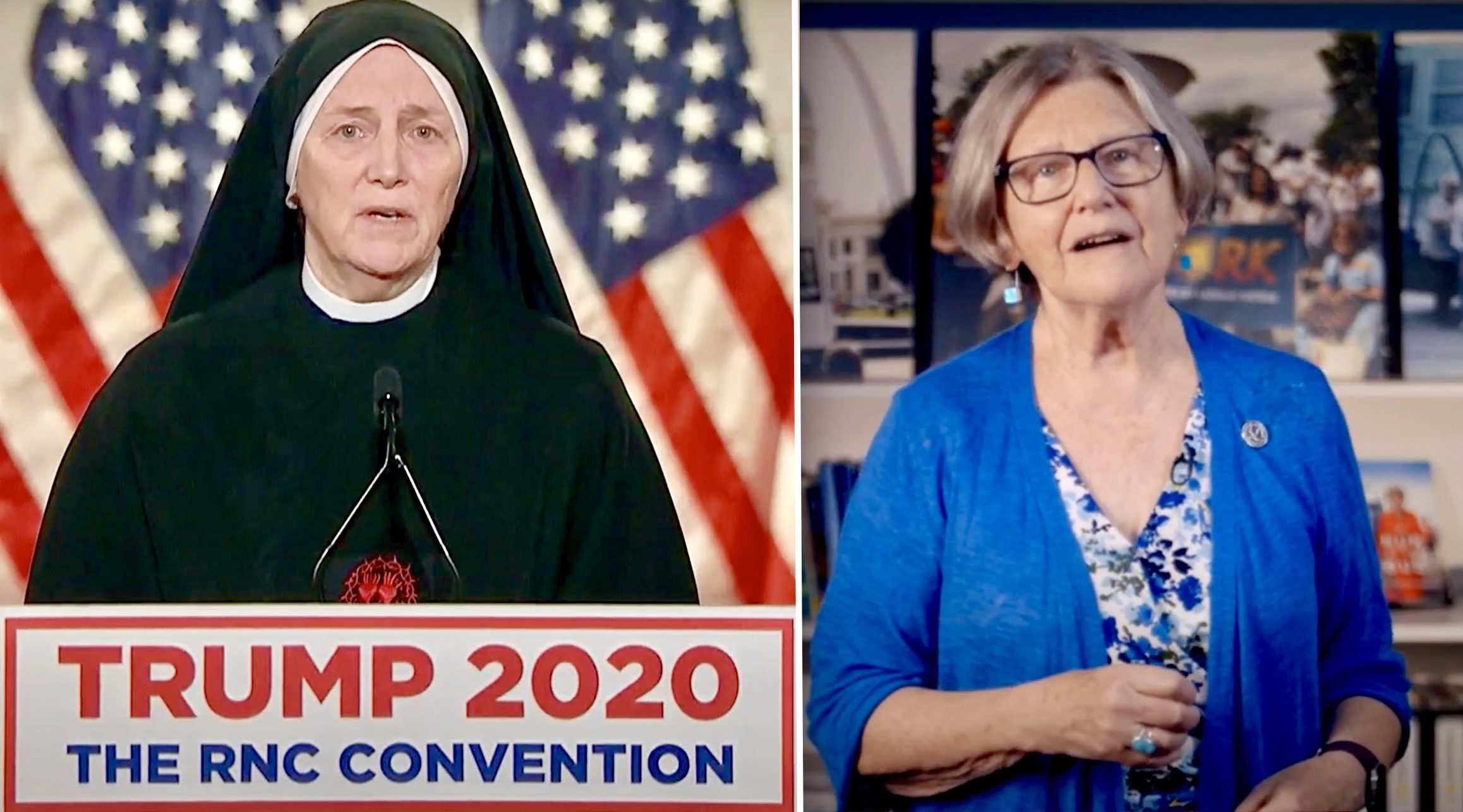A Tale of Two Sisters

Most people’s knowledge of Catholic politics doesn’t go far beyond the fact that Jack Kennedy had been baptized, so it’s a common misconception that the Catholic vote leans heavily Democratic. This skewed perception is bolstered by the visible presence of technical Catholics among the Democratic elite—including Joe Biden, AOC, and Nancy Pelosi—and the prominent attention these officials (and their friends in the media) tend to give to their Catholic roots, especially during election season.
In reality, however, the Catholic vote is split pretty much down the middle, with Catholics forming a modestly sized but still significant part of each major party’s base, and another group of moderates constituting a Catholic swing vote. For a number of reasons, Catholics tend to exercise an outsized influence on U.S. politics—though just 22% of the general population, they make up about 1/3 of Congress and 2/3 of the Supreme Court. So, every four years we watch both parties make desperate entreaties—some more subtle than others—to Catholic voters, both in their own bases and in the undecided center.
At the 2020 party conventions, we witnessed this trend incarnate in two religious sisters: Simone Campbell, SSS, who offered an invocation at the DNC; and Deirdre “Dede” Byrne, POSC, who gave a speech at the RNC. The two women point to drastic differences in what each of the parties is willing to offer to people of faith.
These differences are obvious even in the women’s appearances: Sister Dede stood at the RNC podium in the traditional black habit of her order, backed by a number of American flags, while Campbell teleconferenced into the DNC in a floral blouse and blue cardigan, framed by a few pictures from her own career in activism. (One of them looks like a nun.)
That points to a difference in background, too. Simone Campbell is a lifelong, professional progressive activist, known mostly for her support of Obamacare, her left-wing advocacy group Nuns on the Bus, and her speech at the 2012 DNC—in the same hour as Cecile Richards, then-president of abortion megacorp Planned Parenthood. Byrne, meanwhile, spent years in service in a number of capacities before finally coming to the Little Workers of the Sacred Hearts in her middle age. A medical doctor, she spent 29 years in the Army before retiring at the rank of colonel; she did a brief stint as a missionary; she even travelled to New York City in the wake of 9/11 to offer medical assistance and support. Since taking religious vows, Sister Dede has continued her work as a surgeon, performing “free surgery for the poor and refugees.” Her bona fides in the realm of social justice—especially when it comes to serving the poor and marginalized—certainly outshine a few cross-country lobbying trips in a bus packed with cardigan-clad nuns.
But the two sisters are not separated by a mere difference in appearance, or even in experience. The content of their words varies greatly. In an appeal for the defense of the unborn, Byrne reminded faithful listeners that “As Christians, we first met Jesus as a stirring embryo in the womb of an unwed mother and saw him born nine months later in the poverty of the cave.” Campbell, meanwhile, got no more specific than sentimental appeals to the “Divine Spirit” and one loose paraphrase of a verse from “the Scripture that informs the three Abrahamic traditions.” It’s a little strange—though not entirely surprising—that Sister Dede’s speech contained more religious material than Sister Simone’s prayer.
Campbell wasn’t afraid to wade into politics in her invocation either, inserting appeals to “end structural racism, bigotry, and sexism, so rife now in our nation.” But she steered clear of anything that might contradict Democratic policies or causes—most notably abortion. (James Martin, SJ, who also delivered an invocation at the DNC, did pray for the unborn—to his great credit.)
This is the problem, by and large, with what we call the “religious left” today: it’s virtually indistinguishable from the secular one. This is why appearance matters. It’s not a cheap shot to point out that Sister Simone is wearing secular clothes. It mutes whatever religious witness she might have hoped to give (not just on Thursday at the RNC, but over years and across the country). It makes her, in effect, just another speaker at the convention. Sister Dede, meanwhile, stands out. There is no mistaking who she is.
This is what many of her critics—who point to ecclesial cautions against partisan activity—seem not to understand. A nun in a habit is not consumed by the political party whose convention she attends—does not, in the familiar phrase, render herself unto Caesar. Marked as she is, she cannot help but retain a degree of independence; and yet her courageous entry into the political arena affords her an opportunity to realize the tenets of her faith—not just in her own life, which she has been doing for decades, but in the party and the country as a whole. A nun in a cardigan, meanwhile, suggests a religious contingent that can’t bring anything to the table but votes.
If there’s any justice in this world, it won’t even manage to do that.
Comments